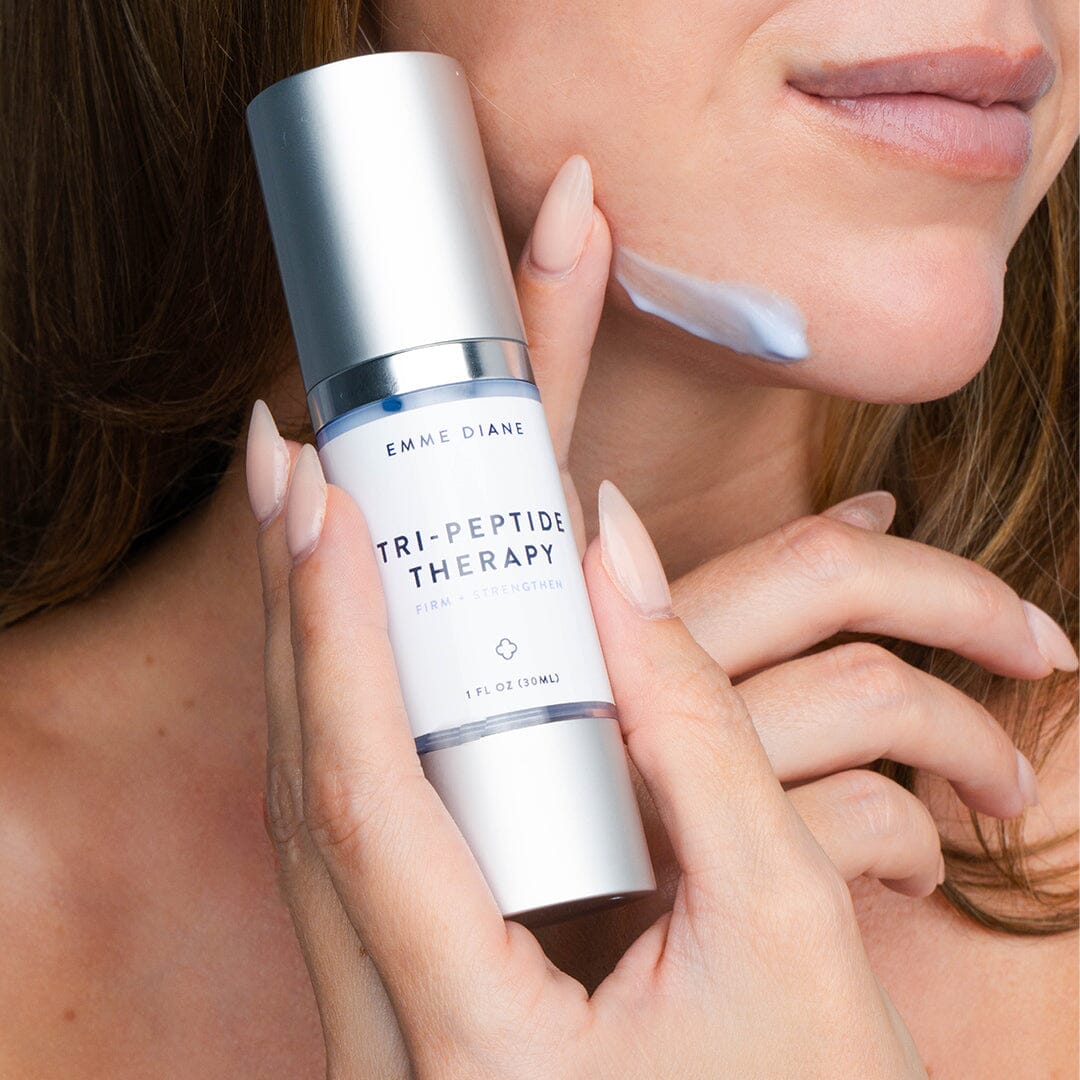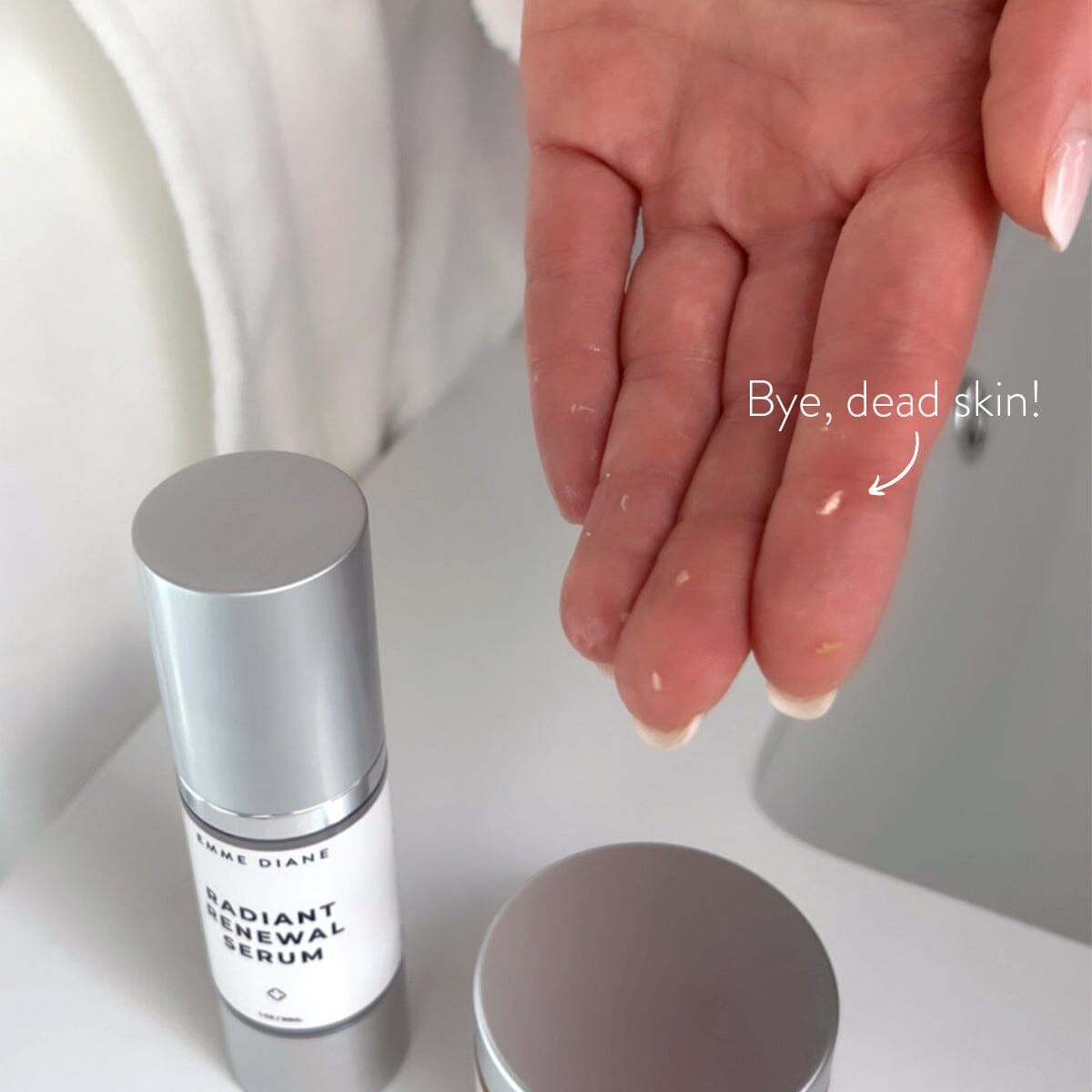3 Reasons to Rethink Hypochlorous Acid Sprays for Acne-Prone Skin
by Emily Burg on September 13, 2024
We’ve all been there—tempted by the latest skincare trend that promises to be the overnight fix for all of our skin woes. Lately, hypochlorous acid sprays have been getting a lot of buzz for just that reason. They claim to be a quick and easy fix for acne-prone skin…but as we’ve discussed before, sometimes what seems like a simple solution can actually create more problems down the road. So before you run out to add one of these trendy sprays to your routine, let’s take a moment to talk about what they really do, and why they may not be the right choice for every skin type.
What Are Hypochlorous Acid Sprays, Anyway?
So, what exactly are these hypochlorous acid sprays that everyone’s talking about? Essentially, hypochlorous acid is something our own bodies naturally produce as part of our immune response—it helps fight off bacteria and reduce inflammation. In the world of skincare, sprays utilizing this ingredient have been heavily marketed as a quick, gentle way to disinfect the skin, calm irritation, and tackle breakouts. You’re supposed to spritz it on after cleansing (although many people are using it in place of cleanser, which we’ll talk more about in a bit), and the idea is that it’ll help keep acne-causing bacteria in check. Sounds pretty good, right? In theory, yes, but there are three key reasons I don’t recommend it to my clients.
1. It Destroys Your Skin’s Microbiome and Skin Barrier
I’ve seen so many people reaching for a hypochlorous acid spray after a sweaty workout to “clean” the skin, instead of actually cleaning it. But what this does is actually two-fold. Hypochlorous acid, when used over time, disrupts the skin’s healthy microbiome and weakens its barrier, which can easily lead to dry, sensitive, red, and irritated skin. If you then add sweat to the mix—which is drying in of itself—you are creating a double-drying, super-sensitizing situation. So, using it as a crutch in the short term will create long-term issues.
2. It Doesn’t Kill Bacteria in Your Pores
While hypochlorous acid sprays are great at killing bacteria on the surface of your skin, they don’t get to the root of the problem—literally. Acne starts deep within the pores, where bacteria mix with oil and dead skin cells to create those dreaded breakouts. Unfortunately, a quick spritz of hypochlorous acid isn’t going to kill bacteria that deeply, which is where it really matters. So, while it might make the surface of your skin feel clean, it’s not addressing the real culprits hiding beneath. If you really want to stop acne bacteria at the source, I recommend opting for benzoyl peroxide. It’s been a tried and true ingredient used to combat acne for years, and for good reason.
3. It Doesn’t Address the Debris in Your Pores
Beyond bacteria, there’s another major culprit behind breakouts—debris like dead skin cells, oil, and dirt that get trapped inside your pores. Similar to not addressing the bacteria inside of the pores, hypochlorous acid does nothing to address the gunk hiding beneath the surface that’s actually causing the breakouts. This is where a well-balanced routine that includes other products like cleansers, exfoliants, and acids shines.
A Short-Term Band-Aid for a Long-Term Issue
Anything marketed as a quick fix or shortcut is exactly that—a short-term bandaid for a longer-term issue. Sure, hypochlorous acid is not going to necessarily CAUSE breakouts on its own since it's a non-comedogenic ingredient. But the real problem is how it’s being used as a crutch for proper cleansing and skin care, and its potential to exacerbate skin problems over time. If you’re currently using hypochlorous acid and would like to transition to a more effective, long-term skincare routine, I encourage you to take my free online consultation. We’ll be able to work together to build a thoughtful routine that is based on your unique skin type and concerns, instead of quick-fix products that are trending on the internet.
xoxo,
Emme


